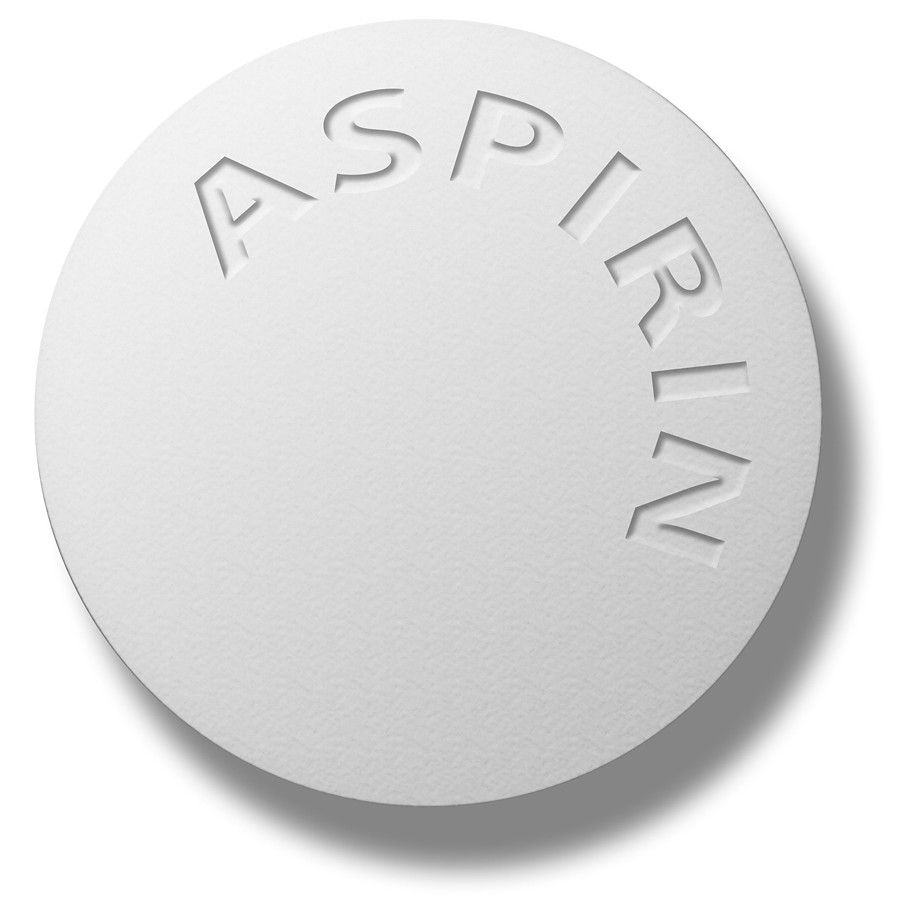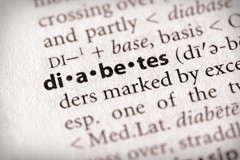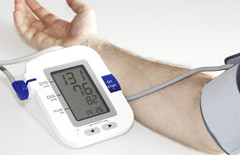
Respiratory health harms often follow flooding: Taking these steps can help

Tips to leverage neuroplasticity to maintain cognitive fitness as you age

Can white noise really help you sleep better?

Celiac disease: Exploring four myths

What is prostatitis and how is it treated?

What is Cushing syndrome?

Exercises to relieve joint pain

Think your child has ADHD? What your pediatrician can do

Foam roller: Could you benefit from this massage tool?

Stepping up activity if winter slowed you down
Harvard Health Blog
Read posts from experts at Harvard Health Publishing covering a variety of health topics and perspectives on medical news.
Articles
Diabetes drug showing promise for prostate cancer treatment
Metformin—the drug that millions of people with diabetes take to control their blood sugar—may be on the brink of a second career. Evidence from a variety of studies suggests that metformin may delay or slow the progression of prostate cancer. Metformin does not, however, appear to prevent the development of prostate cancer in the first place.
12 ways to help a child make the transition to kindergarten
For some children, beginning kindergarten represents a scary transition. They wonder about making new friends and getting used to a new teacher—will they be able to find the bathroom, where will they eat snack, how will they fit in? There are several ways to help make the transition a smooth one. These include acknowledging the child’s fear as real and appropriate while offering reassurance, talking about the transition in a positive way, doing play therapy at home, visiting the school beforehand if possible, and reading to the child about starting kindergarten.
Prostate cancer trajectory set early
In many men diagnosed with prostate cancer, the cancer cells grow so slowly that they never break free of the gland, spread to distant sites, and pose a serious risk to health and longevity. In others, cancer is fast growing and aggressive from the beginning. A new Harvard study shows that the aggressiveness of prostate cancer at diagnosis remains stable over time for most men.
Prostate cancer lives as it is born: slow-growing and benign or fast-growing and dangerous
In many men diagnosed with prostate cancer, the cancer cells grow so slowly that they never break free of the gland, spread to distant sites, and pose a serious risk to health and longevity. Instead of embarking on immediate treatment, a growing number of men choose active surveillance, in which doctors monitor low-risk cancers closely and consider treatment only when the disease appears to make threatening moves toward growing and spreading. A new Harvard study shows that the aggressiveness of prostate cancer at diagnosis remains stable over time for most men. If confirmed, then prompt treatment can be reserved for the cancers most likely to pose a threat, while men with slow-growing, benign prostate cancer—which is unlikely to cause problems in a man’s lifetime—can reasonably choose active surveillance.
Above-normal blood sugar linked to dementia
There are many reasons to keep your blood sugar under control: protecting your arteries and nerves are two of them. Here’s another biggie: preventing dementia, the loss of memory and thinking skills that afflicts millions of older Americans. A study published today in the New England Journal of Medicine shows that even in people without diabetes, above normal blood sugar is associated with an increased risk of developing dementia. The study does not prove that high blood sugar causes dementia, only that there is an association between the two. For that reason, don’t start trying to lower your blood sugar simply to preserve your thinking skills, cautions Dr. Nathan. There’s no evidence that strategy will work, although he says it should be studied. But it is still worth keeping an eye on your blood sugar. Excess blood sugar can lead to diabetes and a variety of other health problems, including heart, eye, kidney, and nerve disease.
Want to live to age 120? Most Americans say no
As medical research and healthy living continues to extend life, the Pew Research Center asked more than 2,000 Americans if they would take advantage of medical treatments to slow the aging process and let them live to age 120. More than half (56%) said they would not, but 65% thought that other people would want it. The Pew survey did not ask why most adults would not want life extending treatment. Previous work has identified what people fear about getting too old. These include loss of independence, running out of money, not being able to live at home, pain, and more. But there are ways to minimize the problems that come with age. The strategies, like exercising and not smoking aren’t sexy, nor do they rely on medical breakthroughs. But they can maximize one’s “healthspan” as well as lifespan.
Tattoos, moles, and melanoma
A new report suggests that skin cancer can sometimes hide in a tattoo. Writing in JAMA Dermatology, three German clinicians describe the case of a young man who wanted to remove large, multicolored tattoos on his arms and chest. During the removal process, his doctors discovered a suspicious mole inside the tattoo. It turned out to be cancerous—stage II melanoma. Tattoos may make it difficult to evaluate moles. Laser removal therapy is also problematic when moles are present. If you are considering getting a tattoo, either make sure it will be applied to skin that is free or moles or birthmarks, or have your doctor check any moles in the to-be-tattooed area beforehand. If you are planning to have a tattoo removed, check for moles within the tattoo. If you see any, ask your doctor or dermatologist to check them out before starting laser therapy.
High intake of omega-3 fats linked to increased prostate cancer risk
The omega-3 fats in fish have been linked to all sorts of health benefits, including protection against prostate cancer. But for the second time in two years, researchers have found a link between high levels of omega-3 fats in the blood and prostate cancer. Researchers at the Fred Hutchinson Cancer Center in Seattle men with high levels of omega-3 fats were 43% more likely to have been diagnosed with prostate cancer than men with low levels. The finding were published online in the Journal of the National Cancer Institute.
Back pain often overdiagnosed and overtreated
What doctors call “routine” back pain can really, really hurt. Surprisingly, the best treatment is usually quite conservative—over-the-counter pain relievers, ice and heat, and gentle exercise. Yet for decades, many doctors have been ordering more and more unnecessary tests, narcotics, and referrals to surgery. A new study of 24,000 people treated for back pain from 1999 through 2010 shows that many were not treated according to established guidelines, which promote treatment with over-the-counter pain relievers and physical therapy when appropriate, and advise against early referral for MRI or CT scans, the use of narcotics, or early referral to other physicians for injections or surgery. For a first-time bout with low back pain, or another go-round with it, try cold and heat, rest followed by gentle exercise, and over-the-counter pain relievers, such as acetaminophen or an NSAID like aspirin, ibuprofen, or naproxen.
Expert panel proposes annual lung cancer test for some
Proposed recommendations from the influential U.S. Preventive Services Task Force call for annual CT scans for some current and former smokers. Implementing these recommendations could prevent an estimated 20,000 deaths per year from lung cancer. The task force suggests annual testing for men and women between the ages of 55 and 79 years who smoked a pack of cigarettes a day for 30 years or the equivalent, such as two packs a day for 15 years or three packs a day for 10 years. This includes current smokers and those who quit within the previous 15 years. According to the draft recommendations, which were published today in the Annals of Internal Medicine, the benefits of annual checks in this group outweighs the risks. According to the Task Force recommendations, not all smokers or former smokers should undergo yearly CT scans. This group includes smokers or former smokers who are younger than 55 or older than 79, who smoked less or less often than a pack of cigarettes a day for 30 years or the equivalent, who quit smoking 15 or more years ago, or who are too sick or frail to undergo treatment for lung cancer. These draft recommendations have been posted for public comment until August 26, 2013.
Go with the flow: engagement and concentration are key
Have you ever been so immersed in what you were doing that all distractions and background chatter just fell away? Nothing existed except the brush and your painting, your skis and the slope, your car and the road. Mihaly Csikszentmihalyi, a renowned professor of psychology at Claremont Graduate University in Claremont, Calif., calls that state of intense absorption “flow.” Flow experiences lead to positive emotions in the short term, and over the long term people who more frequently experience flow are generally happier. Flow experiences have several common characteristics. These include losing awareness of time, not thinking about yourself, working effortlessly, and wanting to repeat the experience. They are more likely to occur when there is a balance between the challenge of an activity and the skill you have in performing it.
Women often fear sex after a heart attack
A heart attack can be a frightening wake-up call with long-lasting aftereffects. It’s no surprise that women often tread gently after having a heart attack—and many don’t tread back into the bedroom for sex. Up to 60% of women are less sexually active after a heart attack, often due to worries that sex could trigger a repeat heart attack. A new study suggests that although women believe sex is important for resuming a sense of normalcy and intimacy with their partners, many are fearful that it would be too much for their hearts to take. Reassurance from a doctor is sometimes all that’s needed to ease those fears. How does a woman know if she’s physically ready for sex after a heart attack? It’s safe to have sex if you can work up a light sweat without triggering symptoms like chest pain or shortness of breath.
Falling TVs injure 17,000 kids a year
More than 17,000 American youths end up in emergency departments each year with injuries from a falling television set. Two-thirds of them are under age 5, according to a report published online today in the journal Pediatrics. From 1996 to 2011, nearly 400,000 children under 18 years old were treated in emergency departments for TV-related injuries. In 1996, most of the injuries occurred when kids ran into television sets. By 2011, injuries from falling TVs dominated. The rate of TVs falling from dressers, bureaus, chests of drawers, and armoires nearly quadrupled. The authors of the study suggest that adding TVs to the list of furniture types that come with anti-tip devices “would be an important step in decreasing the number of injuries resulting from falling TVs.”
New treatment option for prostate cancer that has spread to the bones
The radioactive element radium has been used to treat cancer since soon after its discovery in 1898 by Marie Curie and her husband, Pierre. And it’s still finding new uses—a recently approved form of radium, radium-223 (Xofigo), is now being used to treat prostate cancer that has spread to the bones. Researchers say that Xofigo addresses “an unmet need” in men with this type of prostate cancer, since current therapies don’t work very well against it.
Straight talk needed to choose health care at the end of life
Birth, childhood, adulthood, and death span the book of life. Unfortunately, many people tend to avoid thinking or talking about how they want the final chapter to read. For the seriously ill or elderly—and even those who aren’t—not expressing wishes and desires about health care at the end of life can lead to getting care you wouldn’t have chosen for yourself. Families often bear the brunt of delaying or avoiding a discussion about a loved one’s end-of-life preferences. That often leaves family members making decisions without knowing what their loved one would have wanted. Doctors in Canada just published recommendations for starting the end-of-life conversation. The Conversation Project offers a “starter kit” to help people prepare to discuss their end-of-life wishes. Another resource is Five Wishes, a planning document distributed by the Aging with Dignity Foundation.
Taking aspirin linked to lower risk of colorectal cancer
Aspirin has many uses, from easing a headache or cooling a fever to preventing heart attacks and the most common kind of stroke. It may be time to add “preventing colorectal cancer” to the list. New results from the Women’s Health Study, a clinical trial that evaluated the benefits and risks of low-dose aspirin and vitamin E among nearly 40,000 women, show that aspirin reduces the risk of developing colorectal cancer by 20%. The effect isn’t immediate, but instead takes ten to 20 years to be seen. Aspirin isn’t without its drawbacks, including gastrointestinal bleeding and ulcer formation. Both occurred slightly more often among women taking aspirin. Although the Women’s Health Study results sound promising, don’t go reaching for the aspirin bottle just yet. Taking aspirin—and any other drug—is really a balancing act between benefits and risks.
Genetic testing to guide prostate removal: too soon to know if it helps
Is it possible for a gene test to identify whether a prostate that’s healthy today is sure to develop cancer down the road? And should results of such a test be the basis for removing a seemingly healthy prostate gland? Those are questions raised by recent press reports of a British man who had his prostate gland removed because he carried a faulty gene called BRCA2.
Aspirin-like drug may help diabetics control blood sugar
An old, aspirin-like drug called salsalate could help control blood sugar in people with type 2 diabetes. In the TINSAL-T2D trial, 286 volunteers took pills containing either salsalate or a placebo for nearly a year. Over the course of the trial, those in the salsalate group had lower blood sugar levels, and some were even able to reduce dosages of other diabetes medications they were taking. Experts aren’t exactly sure how salsalate helps control blood sugar, but its effectiveness supports the idea that inflammation plays a role in type 2 diabetes. Although the results are promising, what we really need to know about salsalate (or any new or repurposed drug) is how its long-term benefits and risks stack up against each other. The trial was too small and too short to determine those risks. According to the researchers, such “outcomes require continued evaluation before salsalate can be recommended for widespread use” by people with type 2 diabetes.
Medical crises don’t take vacations
The sudden hospitalization yesterday of Teresa Heinz Kerry, wife of U.S. Secretary of State John Kerry, while vacationing on Nantucket Island is high-profile testimony that illness can happen at any time—even during a vacation. Heinz Kerry was taken by ambulance on Sunday afternoon to Nantucket Cottage Hospital. She was accompanied by her husband. After being stabilized, she and the Secretary of State were flown to Massachusetts General Hospital in Boston. Neither the hospital nor Heinz Kerry’s family has commented on the nature of her illness. News reports say she is in critical but stable condition. Heinz Kerry’s situation highlights the value of electronic medical records, and the hazards of not having, or being able to access, medical information when you are travelling or on vacation.
Fluids, cool air key to avoiding heat stroke
Summer’s heat is as predictable as winter’s chill. Heat-related illnesses—and even deaths—are also predictable. But they aren’t inevitable. In fact, most are preventable. Most healthy people tolerate the heat without missing a beat. It’s not so easy for people with damaged or weakened hearts, or for older people whose bodies don’t respond as readily to stress as they once did. There are three different levels of heart-related illness: heat cramps, heat exhaustion, and heat stroke. Some simple choices can help you weather the weather. Drinking water and other hydrating fluids is essential. Putting off exercise or other physical activity until things cool down also helps. Chilled air is the best way to beat the heat. Sticking with smaller meals that don’t overload the stomach can also help.
Checking blood pressure at home pays off
Do-it-yourselfers, take heart. Here’s something else to do at home that can have a substantial benefit on your health: measure your blood pressure. It’s easy, inexpensive, and helps control blood pressure better than visits to the doctor. The latest evidence for the benefits of home blood pressure monitoring comes from researchers in Minnesota. In a 12-month clinical trial, 72% of those doing home monitoring had their blood pressure under control compared to 57% who received usual care. The benefits persisted six months after the program had ended. Anyone can monitor blood pressure at home. You can buy a good home blood pressure monitor at a pharmacy or online merchant for anywhere from $50 to $100. Some insurance companies cover the cost.
New trial muddies the water about diet, exercise, and diabetes
Long-awaited results from a nearly 10-year trial exploring the effect of changes in diet and exercise among people with diabetes weren’t what most people expected. The Look AHEAD trial found that intensive efforts to lose weight by eating less and exercising more didn’t provide any more protection against heart disease—a common co-traveler with diabetes—than standard diabetes support and education. The spin from some media reports is that weight loss doesn’t reduce heart disease risk among people with type 2 diabetes, but I think that’s the wrong interpretation. The results of the Look AHEAD trial don’t contradict the value of lifestyle changes. People in the intensive change group improved their blood sugar with fewer drugs, saving an estimated $600 per year, they were also less likely to have developed chronic kidney disease and less self-reported vision problems. The Look AHEAD results reinforce for me that diabetes care needs to be tailored to the individual.

Respiratory health harms often follow flooding: Taking these steps can help

Tips to leverage neuroplasticity to maintain cognitive fitness as you age

Can white noise really help you sleep better?

Celiac disease: Exploring four myths

What is prostatitis and how is it treated?

What is Cushing syndrome?

Exercises to relieve joint pain

Think your child has ADHD? What your pediatrician can do

Foam roller: Could you benefit from this massage tool?

Stepping up activity if winter slowed you down
Free Healthbeat Signup
Get the latest in health news delivered to your inbox!
Sign Up





















